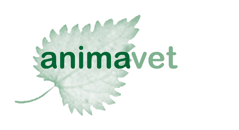
animal health consulting
Pollyanna and the art of seeing the whole picture
Christine King BVSc, MANZCVS (equine), MVetClinStud
Have you ever been accused of being "a Pollyanna"? As in, "Oh, don't be a Pollyanna!" Or "you're such a Pollyanna!" Or worse, have you ever heard yourself say, "I don't want to be a Pollyanna, but..."
OK, so the young Hayley Mills' depiction of Pollyanna makes me want to slap the girl, but that ungracious impulse aside, I want to make the case for being a Pollyanna.
It's clear to me that anyone who has a negative view of Pollyanna (and being "a Pollyanna" — Pollyanna-ism; yes, that's now a word!) has never read the book or seen a faithful (i.e., unsentimental) screen adaptation of the story. Because if they had, then they'd know what it was really about:
The Glad Game.
Before he died, making her an orphan, Pollyanna's father taught her the Glad game, which basically goes like this: anytime something bad happens, say to yourself, "even though [this bad thing] has happened, I'm glad that..." and then start naming some things you're glad about. Before long, you're starting to feel a bit better, and you start to get some perspective — and you start to see solutions that might not have even occurred to you in your 'pre-glad' state.
In other words, the Glad game is an acknowledgement that, yes, a bad thing has happened, and it may even be awful; but good things are happening, too — all at the same time.
The Glad game is about practicing the art of seeing the whole picture. It's also about where you place your focus: on just the bad thing that's happened or on the whole picture, including all the good things, which usually far outnumber the bad.
When you start playing the Glad game with animals, funny things happen...
Whether it be a physical problem or a behavioural issue, it's remarkable what happens when you start naming some things that are going right: you start to see more things that are going right. And when you start looking for the improvements that you want to see, you start to see them.
For example, when you start (gently and inquisitively) looking for good behaviour in an animal who's been behaving badly (according to our preferences, at least), the animal starts behaving better. (The key here is gentle and inquisitive attention or curiosity; as the Buddhists would say, 'nonattachment' to any particular outcome.)
Perhaps the behaviour is just a little bit better at first, but if you keep looking for good behaviour, and keep rewarding the little bit that you see, the animal offers more and more of the behaviour you want, and less and less of the behaviour you don't want.
Is this merely an example of reward-based training or is the animal actively participating in improving the relationship between us?
Are we making things happen or simply noticing that they've already happened, that they were already there?
Perhaps it's both. The seeds of change were always there, but they may have needed a little encouragement to germinate and grow.
Either way, the change starts with us.
And it starts with us choosing to see the whole picture, rather than focusing just on what's wrong.
© Christine M. King, 2020, 2022. All rights reserved.
First published on WordPress, 06 Nov 2020.